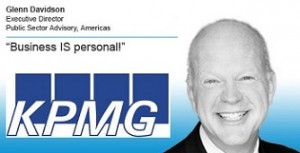Month: February 2011
Happy Birthday… HfS Research!
Exactly one year ago, we bravely declared we were a research company, with a bunch of friends, stringers and part-timers. Today, we are a fully-loaded experienced research organization with depth and breadth of analyst talent across North America and Europe - with further expansion plans imminent. Read More
EquaTerra + KPMG – a new era, or a new error for outsourcing advisory?
So... has KPMG made a wise move purchasing EquaTerra, and how will this impact the industry?Read More
Outsourcing your leadership team: build it… or buy it?
There are similarities between good companies and good football teams: solid staff employees that consistently make the right decisions at the right time. So if you are the helm of a flagging enterprise, should you nurture management talent internally or go to market for it?Read More
Industry-specific analytics: where providers can differentiate or disappoint
As data analysis techniques have gotten smarter over the years, analytics have emerged as a specialized function of business employed broadly across industries and functions. Our new HfS Report, imaginatively titled Where offshore analytics is heading in 2011 investigates...Read More
Bill grills the Madonna of HRO herself: Mary Sue Rogers
Mary Sue Rogers will share her insights into why full-service HRO has had a mixed scorecard in its first 10 years; what she will be doing differently in the next 10; the unique technologies used in HRO not usually found in a traditional HR environment; and the critical role of third parties and what they do in successful HRO engagements. Read More
“Cloud BPO”? C’mon… stop talking cobblers
"Cloud BPO" is, simply put, a load of nonsense. The core fulcrum processes of BPO are the toughest to move into the Cloud, and only the small-to-medium business sector is going to enjoy any modicum of success of moving genuine "BPO" processes, such as finance and HR, into the Cloud in the near-term.Read More
Announcing HfSResearch.com – our new company website!
We've created an entirely new website for our research content, HfSResearch.comRead More
HfS Research announces two new analyst additions to boost data analytics and strategic research acumen
We're excited to announce a couple of terrific new additions to the core research team at HfS. Our goal is to provide our research clients with a unique blend of "real world" sourcing expertise, backed up with real-time research, market data and analytics. Read More
Phil Hassey gets on his horse to pony-up unbridled Asia/Pac BPO coverage for HfS
We're thrilled that Phil Hassey has thrown hit hat in the horse's ring to pony up a couple of BPO appraisals of the region for us in 2011Read More














